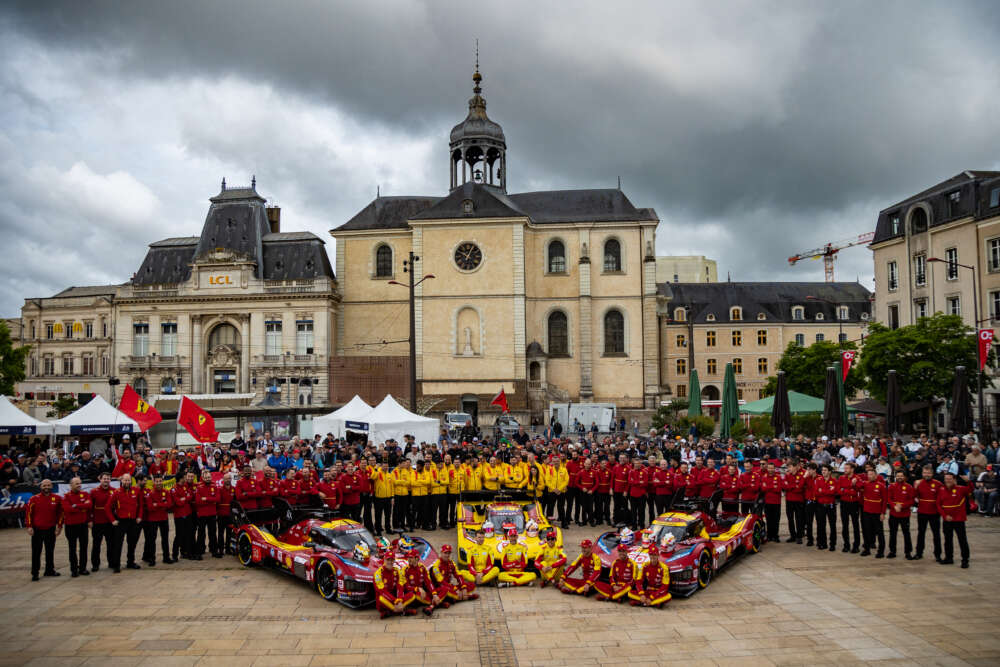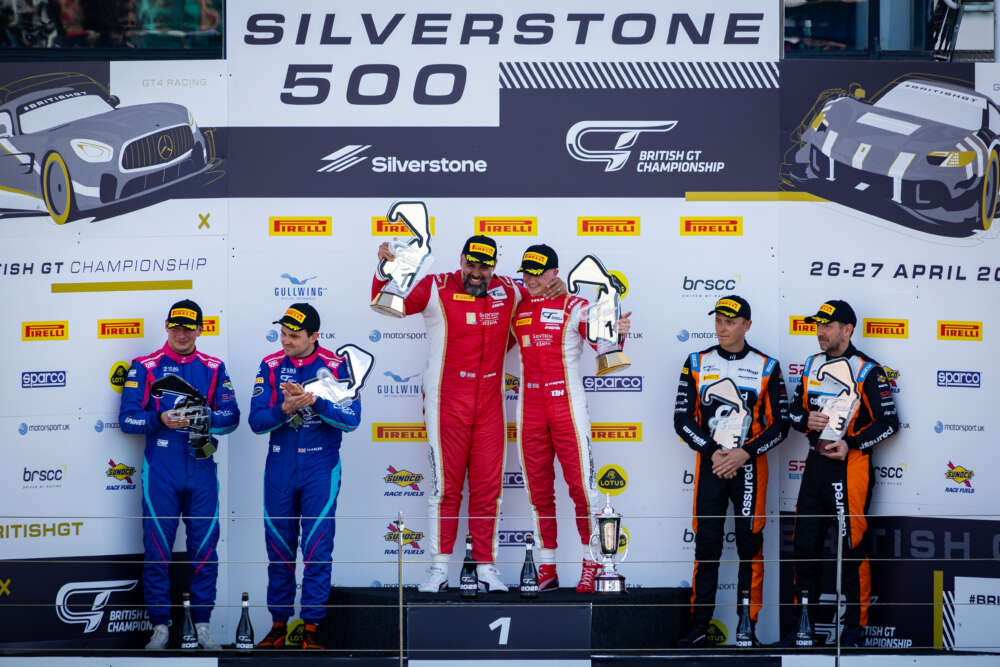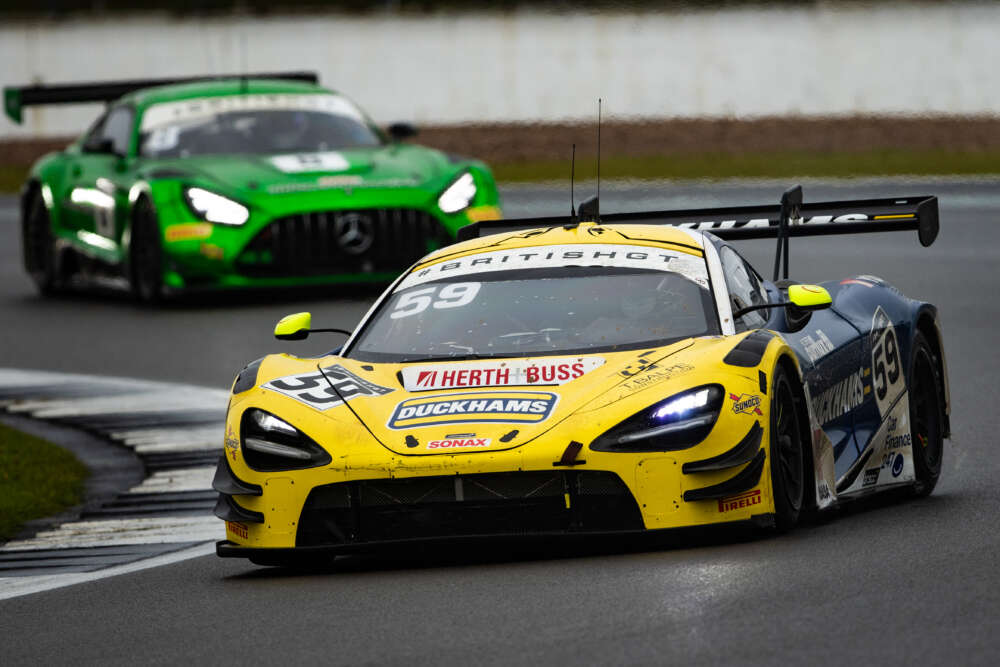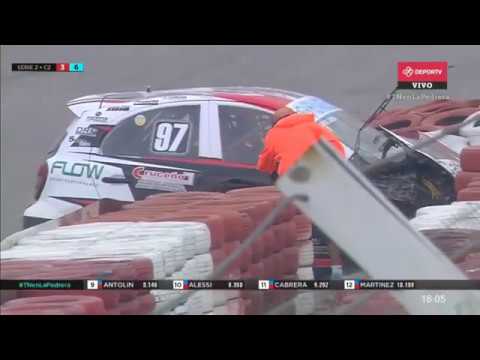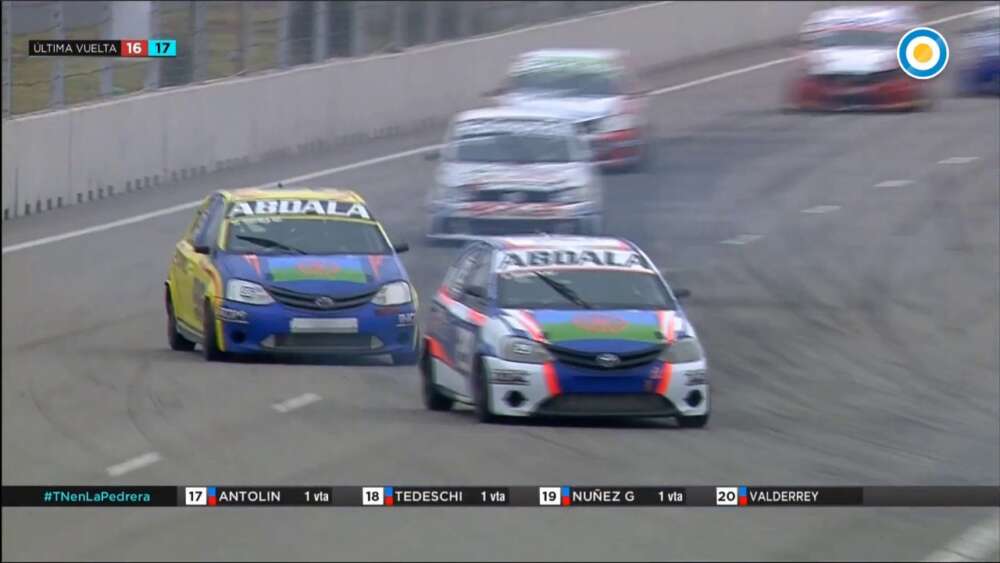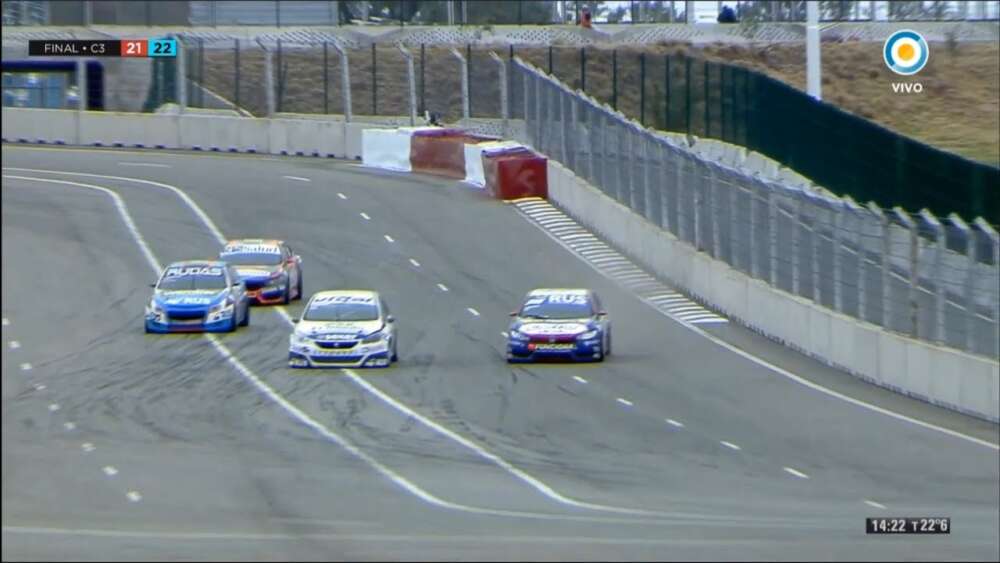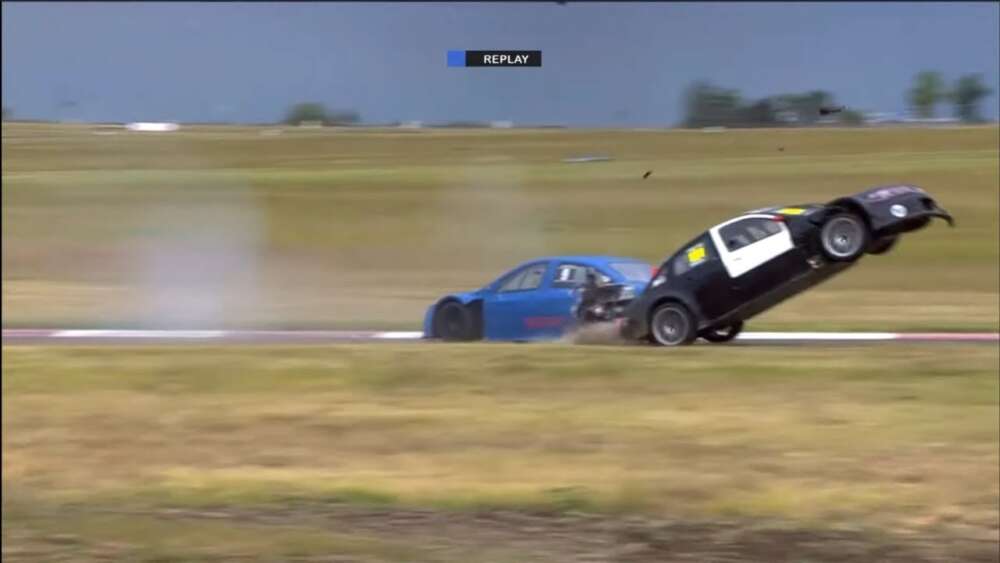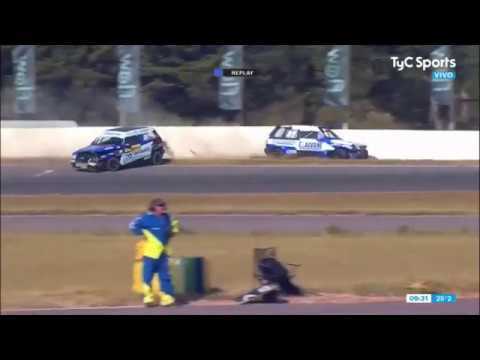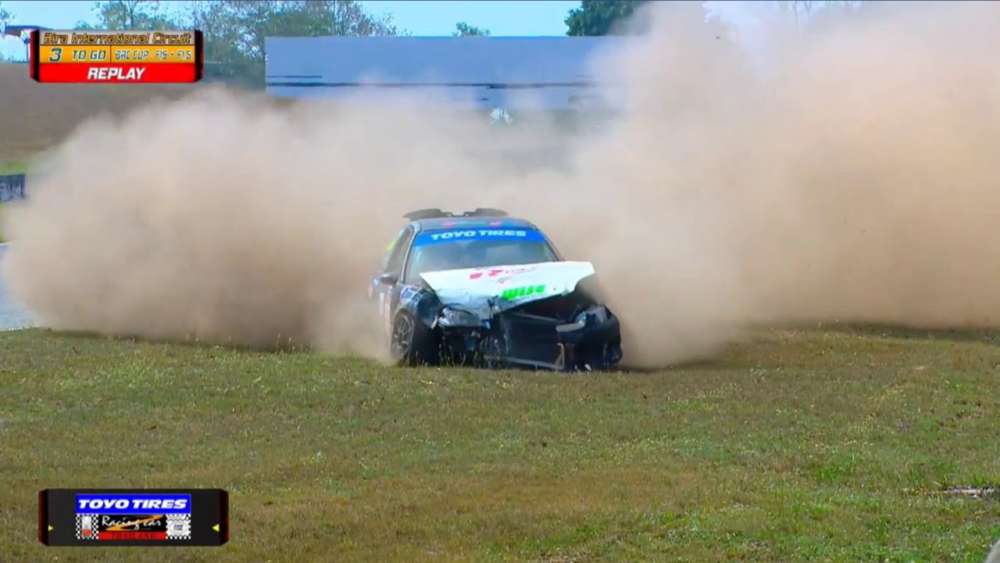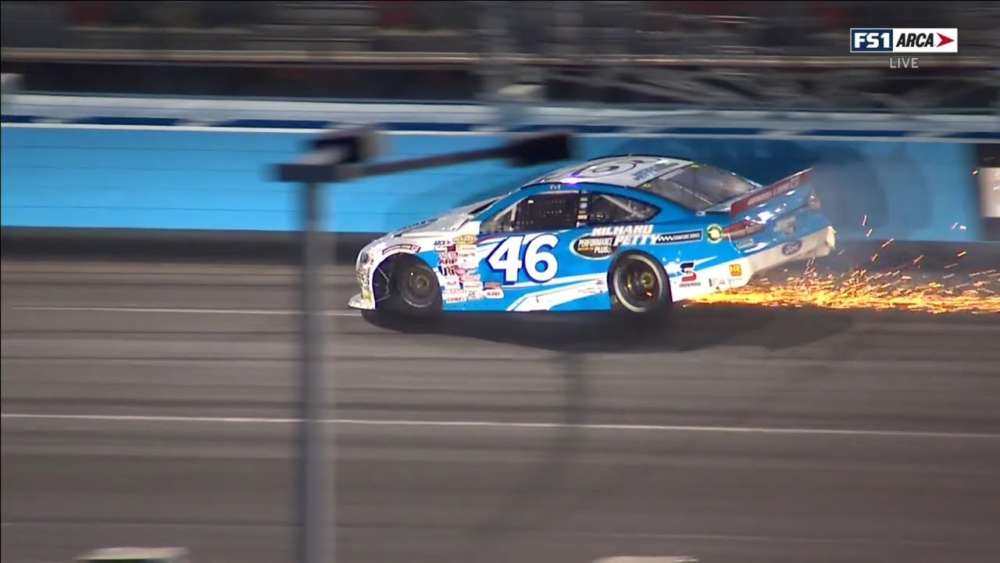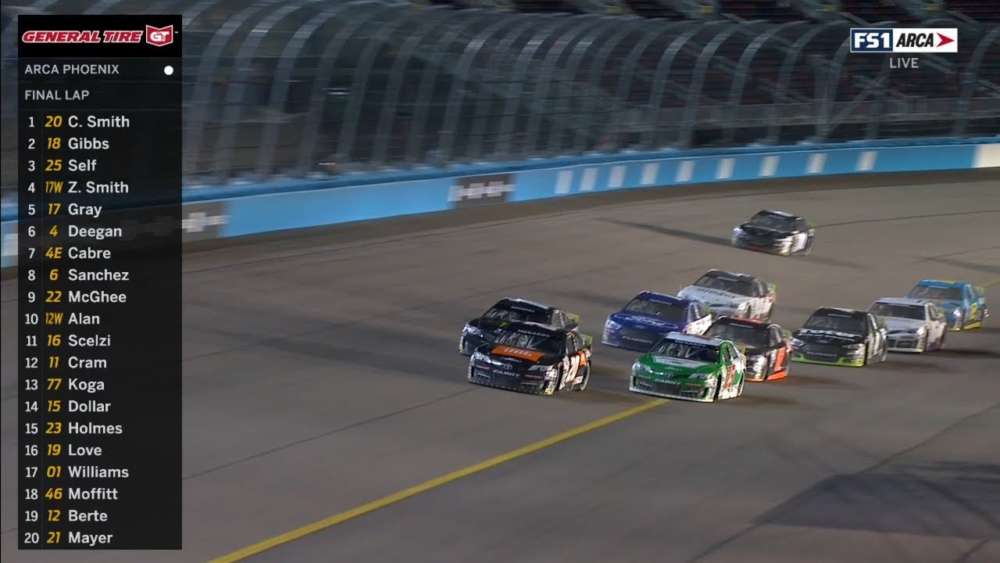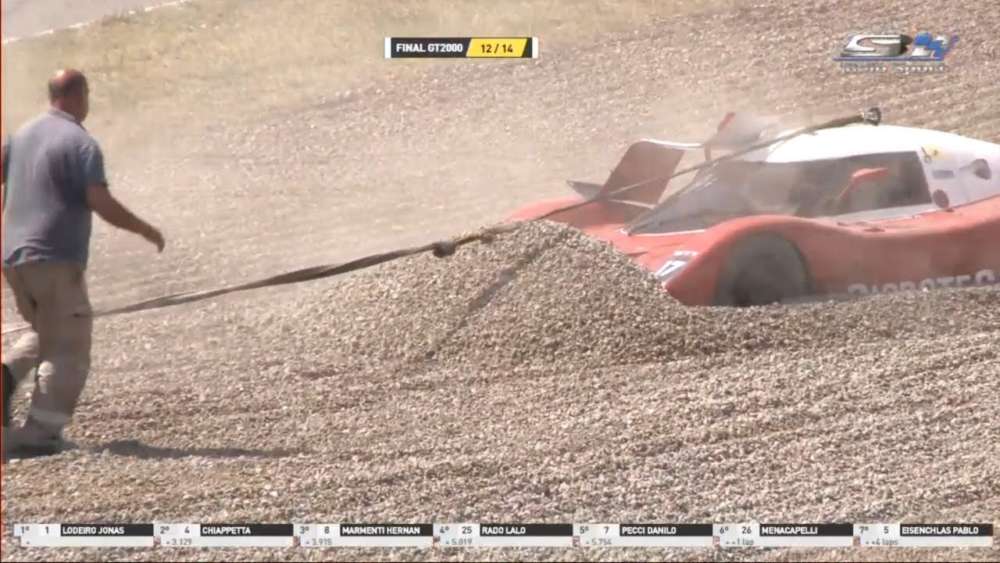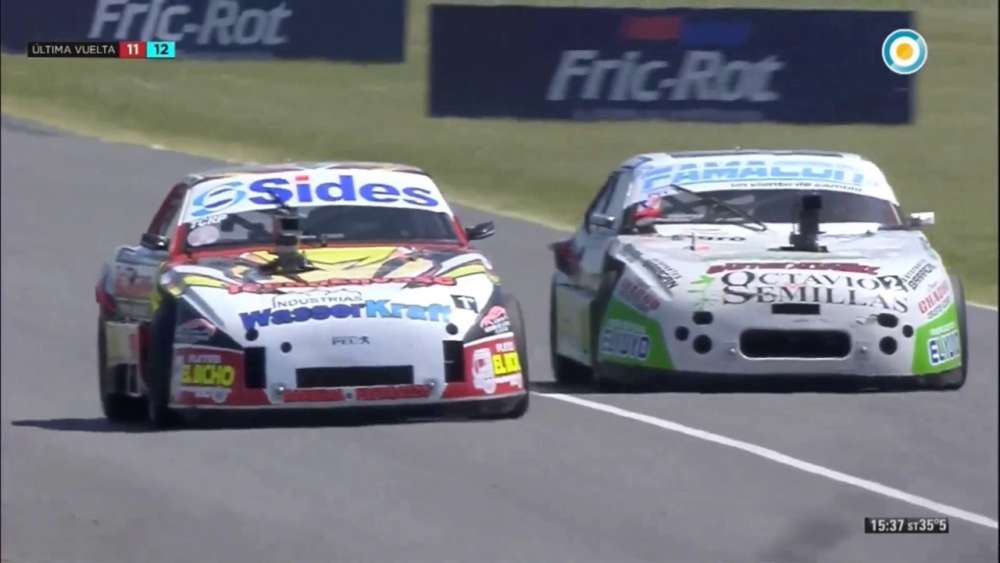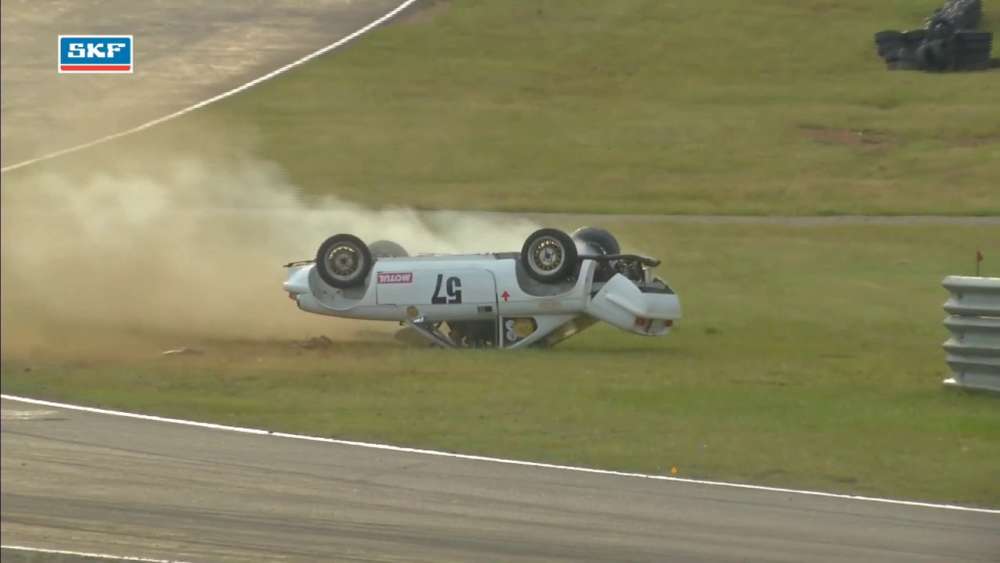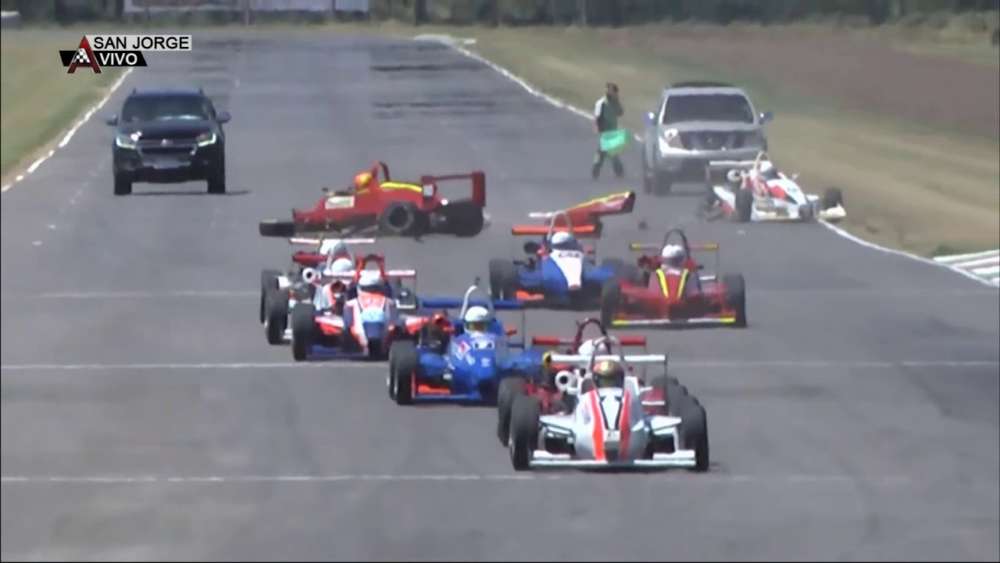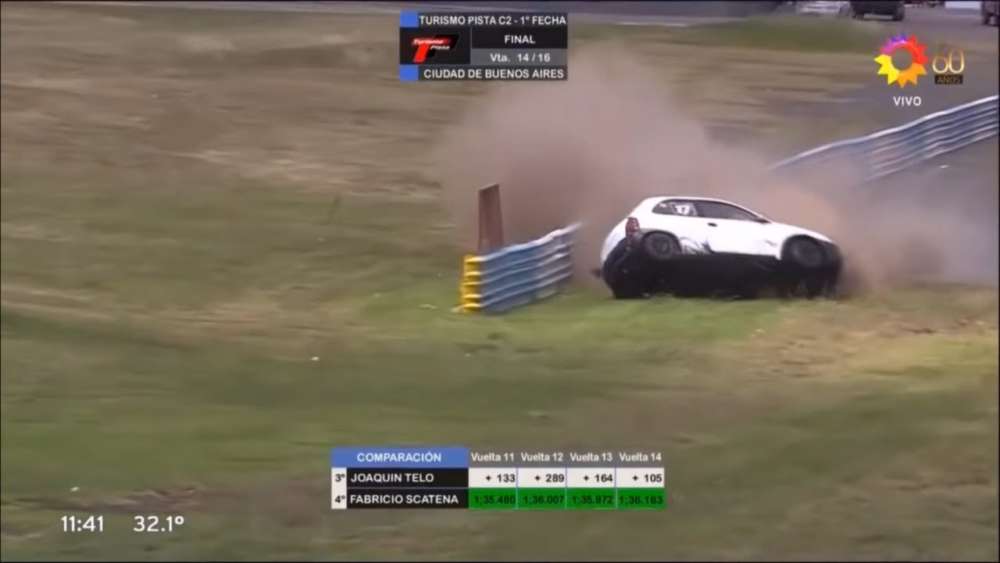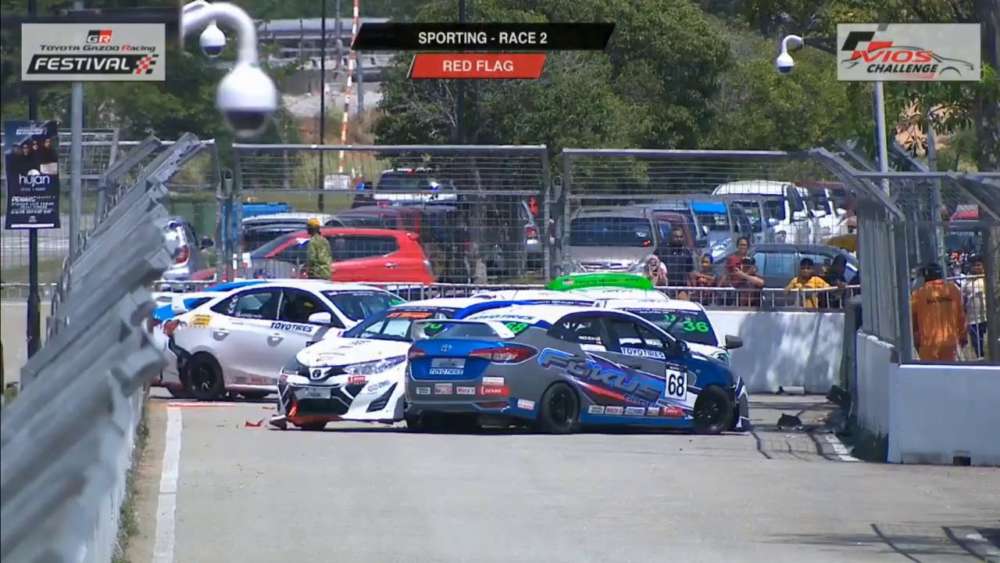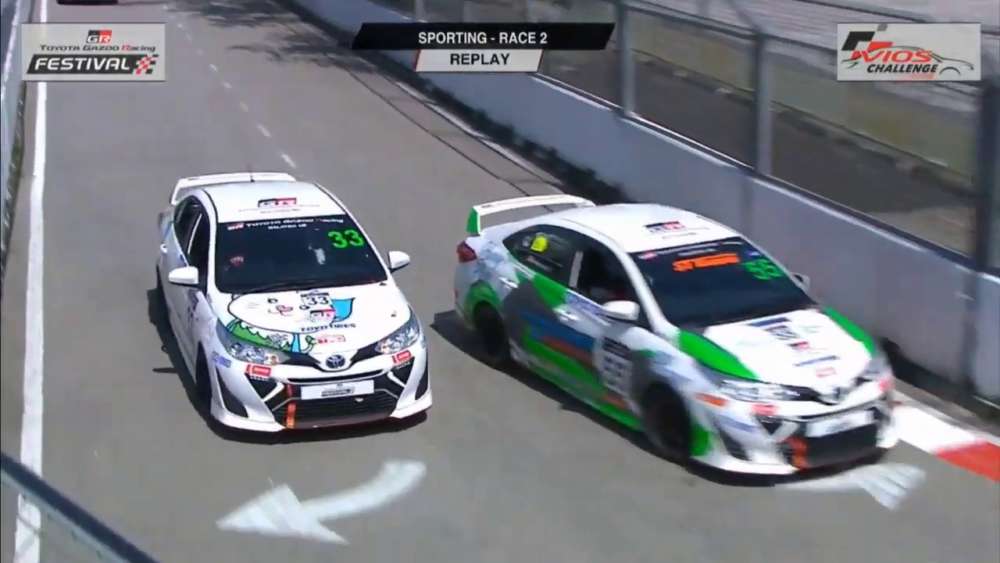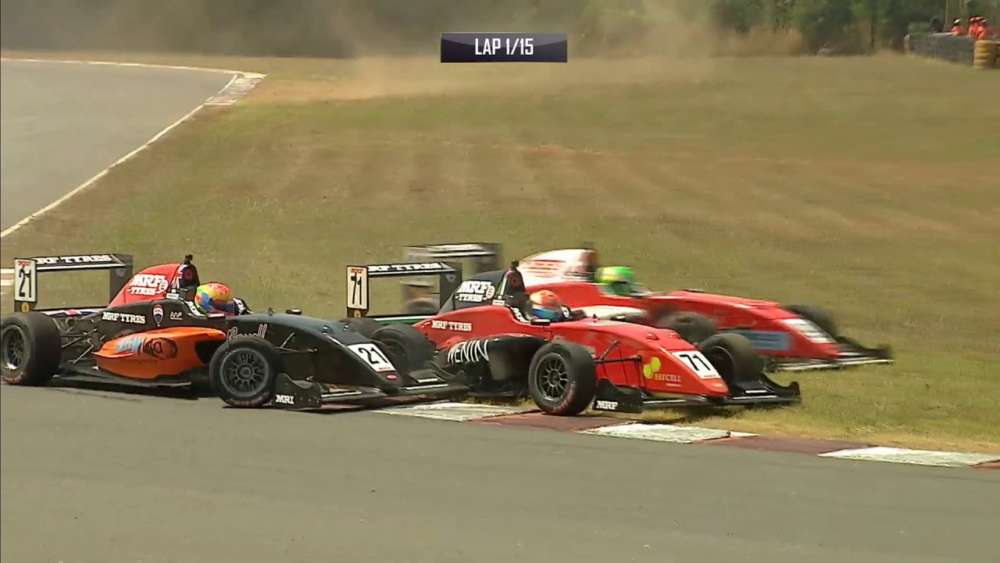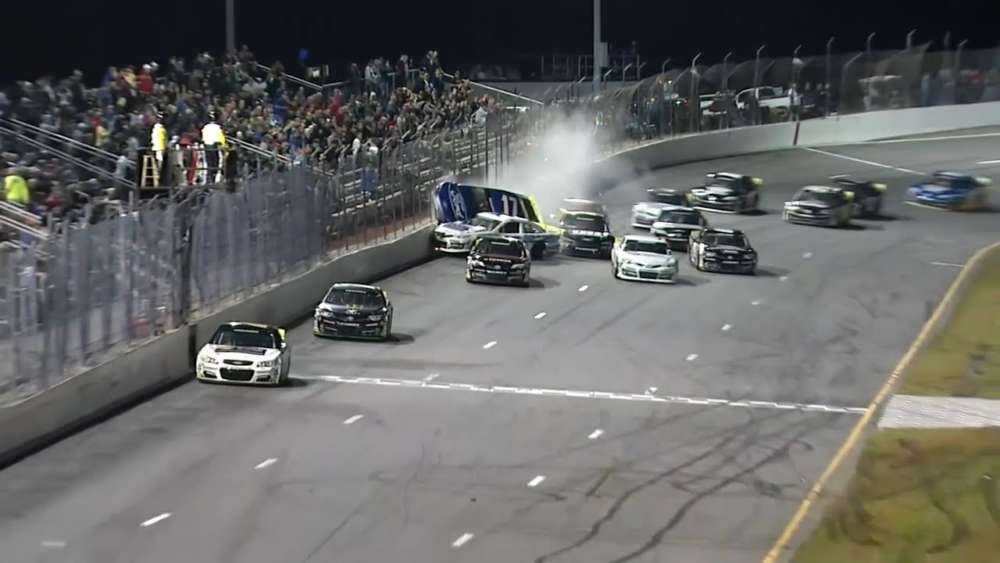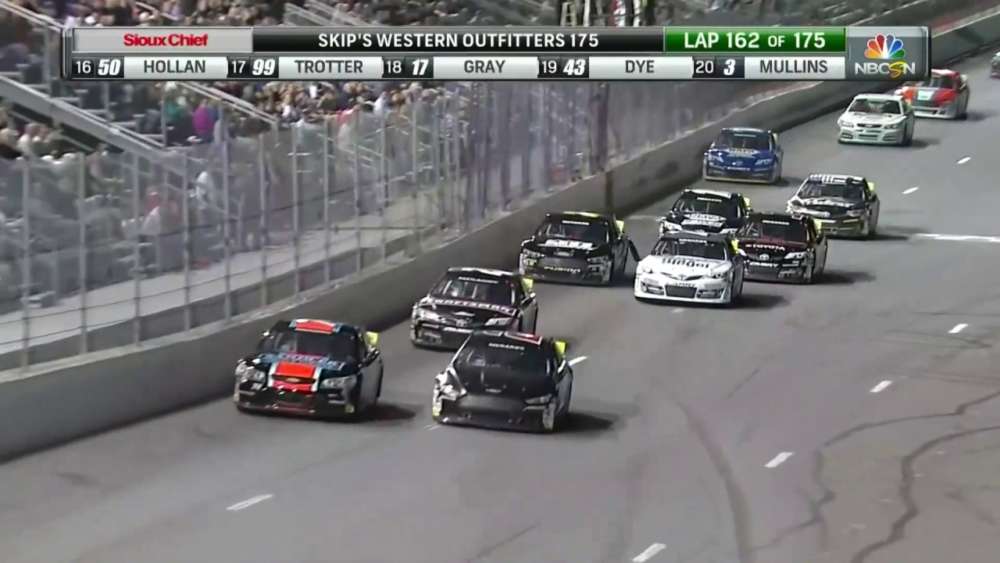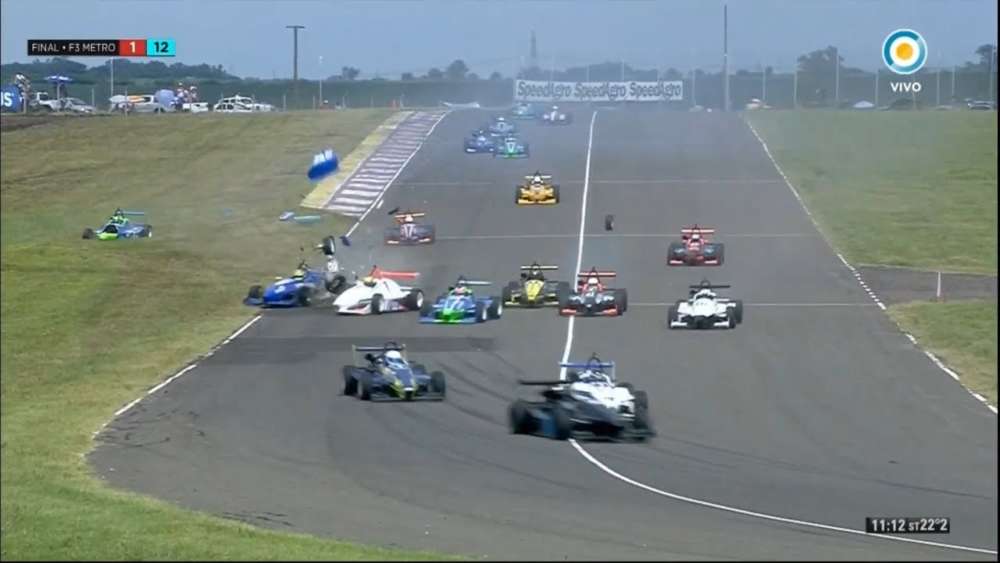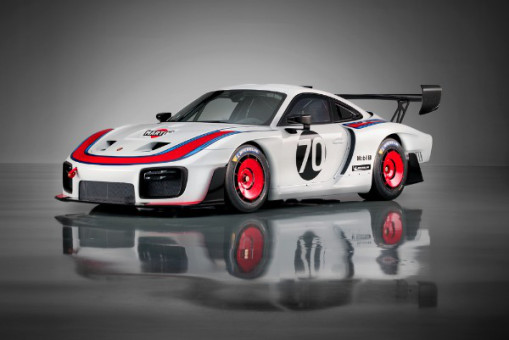
Porsche has unveiled the new 935 on the occasion of the historic “Rennsport Reunion” motorsport event at Laguna Seca Raceway in California. The 515 kW (700 hp) racer featuring a body reminiscent of the legendary Porsche 935/78 will be produced in a limited number of 77 units. “This spectacular car is a birthday present from Porsche Motorsport to fans all over the world,” says Dr Frank-Steffen Walliser, Vice President Motorsport and GT Cars. “Because the car isn’t homologated, engineers and designers didn’t have to follow the usual rules and thus had freedom in the development.”
The race car’s technology for clubsport events and private training on racetracks is based on the 911 GT2 RS high-performance sports car. Like its historic predecessor, most of the body has been replaced or supplemented by carbon-fibre composite parts (CFRP). With its streamlined extended rear, the 935 reaches a length of 4.87 metres. The width of the exclusive clubsport racer measures 2.03 metres.
The spectacular aerodynamics is a completely new development and pays tribute to the Porsche 935/78 Le Mans race car, which fans dubbed “Moby Dick” due to its elongated shape, massive fairings and white base colour. The distinctive wheel arch air vents on the front fairings, which also feature on the GT3 Porsche 911 GT3 R customer vehicle, increase downforce at the front axle. Measuring 1,909 millimetres in width by 400 millimetres in depth, the rear wing lends aerodynamic balance.
Many details of the exterior are a salute to winning vehicles from the company’s motor racing history: The aerodynamically capped rims echo those of the 935/78, with the LED rear lights on the rear wing endplates adopted from the 919 Hybrid LMP1 race car. The side mirrors hail from the current Le Mans-winning 911 RSR, with the exposed titanium tailpipes modelled on the Porsche 908 from 1968.
These references are carried through to the cockpit. The knob on the gearshift lever has a laminated wood design and is reminiscent of racers such as the 917, the 909 Bergspyder and the Carrera GT super sports car. The carbon steering wheel and the colour display behind it have been taken from the 911 GT3 R from the 2019 model year. A massive safety cage combined with a racing bucket seat and a six-point safety harness ensure maximum safety. A second seat for the passenger is available as an optional extra. Air conditioning provides optimal cooling of the interior.
The new 935 is powered by a state-of-the-art 3.8-litre six-cylinder twin-turbo engine, which is largely identical to the high-performance standard unit mounted in the road-legal 911 GT2 RS. Power is transferred to the rear engine via a seven-speed Porsche Doppelkupplung (PDK) with rigid gearbox suspension at the 310-millimetre-wide rear axle. Like in the GT road models of the 911, the driver changes gears via conveniently positioned shift paddles on the steering wheel. Typical of the 911, the weight distribution ensures excellent traction and braking performances. Six-piston aluminium monobloc racing callipers on the front axle in combination with internally ventilated and grooved steel brake discs with a 380-millimeter diameter provide excellent deceleration values at the front axle. The rear axle is fitted with four-piston callipers and 355-millimeter discs.
Like the road-legal 911 GT2 RS, the 1,380-kilogram 935 is equipped with PSM (Porsche Stability Management) including traction control as well as an anti-lock braking system (ABS). Thanks to a so-called map switch, these assistance systems can be adjusted separately or switched off completely, depending on the driving situation.
The new Porsche 935 can be ordered now from 701,948 Euro plus country-specific VAT. Customers will receive their vehicles from June 2019 at exclusive delivery events.
Technical description Porsche 935 (Type 991, Gen. 2)
Concept:
• Single-seater near-standard non-homologated race car.
• Basis: Porsche 911 GT2 RS (991.2)
Weight/dimensions:
• Weight: ca. 1,380 kg
• Length: 4,865 mm
• Width: 2,034 mm (incl. side mirrors)
• Total height: 1,359 mm
• Wheelbase: 2.457 mm
Engine:
• Water-cooled 6-cylinder aluminium twin-turbo rear-mounted boxer engine and rigid suspension; 3,800 cc; stroke 77.5 mm; bore 102 mm; ca. 515 kW (700 hp)
• 4-valve technology with camshaft adjustment and valve-lift switchover
Vario-Cam Plus
• Electronic engine management (Continental SDI 9)
• DMSB-approved 100-cell metal catalytic converter
• Rear silencer with twin tailpipes mounted centrally, Heritage Design
Transmission:
• 7-speed PDK gearbox with rigid suspension and short throw
• Dual mass flywheel
• Internal pressurised oil lubrication with active oil cooling
• Limited slip differential optimised for racing
Bodywork:
• Weight-optimised bodyshell in aluminium-steel composite design with carbon-fibre Kevlar add-on parts to improve aerodynamics and stability
• Rear wing with lights integrated in endplates
• Enlarged air inlets with integrated LED headlights in 4-point design
• Removable escape hatch in roof complying with FIA Art. 275a
• Aerodynamically optimised side mirrors
• 115-litre FT3 safety fuel cell with fuel cut-off safety valve in compliance with FIA Art. 253 in the front, optional with fast-fill coupling
• Welded-in safety cage
• Recaro racing bucket seat with longitudinal seat adjustment and padding system in accordance with FIA Standard 8862/2009
• 6-point safety harness
• Air jack system (three jacks)
• Fire extinguishing system with electronic release unit
Suspension:
Front axle: MacPherson suspension strut; forged suspension links, optimised stiffness with high-performance spherical bearings, centre-locking wheel nuts; 3-way racing dampers, reinforced tie-rod; Electro-mechanical power steering with variable steering ratio; anti-roll bar
Rear axle: Lightweight multi-link suspension, strut ball jointed (Unibal); centre-locking wheel nuts; 3-way racing dampers; anti-roll bar
Brakes:
Brake system:
• Two separate brake circuits for front and rear axles; adjustable via brake balance bar system
Front axle:
• Six-piston aluminium monobloc racing brake callipers with anti-knock-back piston springs; steel brake discs, internally ventilated with 380 mm diameter, racing brake pads, optimised brake cooling ducts
Rear axle:
• Four-piston aluminium monobloc racing brake callipers with anti-knock-back piston springs; steel brake discs, internally ventilated with 355 mm diameter, racing brake pads, optimised brake cooling ducts
Electrical system:
• Instrument cluster consisting of COSWORTH ICD with integrated data logger, sport Chrono watch and boost gauge in a vintage finish
• CFK multifunction steering wheel with pit speed limiter and quick-release coupling
• PSM (Porsche Stability Management) with ABS, Traction Control and Electronic Stability Control (able to be completely switched off)
• Centre console with map switch to adjust the ABS, ESC, TC and switch between preset tyre circumferences
• Porsche Track Precision Race App
• Integrated lap trigger
• Lightweight lithium-ion (Li-Fe-Po-) battery, 60 Ah, leakproof, mounted in passenger footwell
• Emergency cut-off switch in cockpit and outside left of the windscreen
• Tyre pressure monitoring system (TPMS)
• Air conditioning
Rims/Tyres:
Front axle: One-piece light-alloy forged wheels
11.5J x 18 offset 15.3 with centre-locking nut; Michelin transport tyres 29/65-R18
Rear axle: One-piece light-alloy forged wheels
13J x 18 offset -10 with centre-locking nut; Michelin transport tyres 31/71-R18
Colour:
Agate gray water-based paint; optional: Martini livery
Vehicle price:
701,948 Euro plus country-specific VAT. Delivery from June 2019
911 GT2 RS: combined fuel consumption 11.8 l/100 km; CO2 emissions 269 g/km
Source. Porsche
